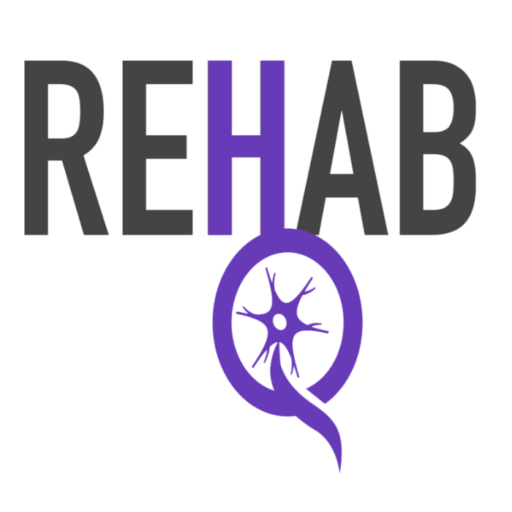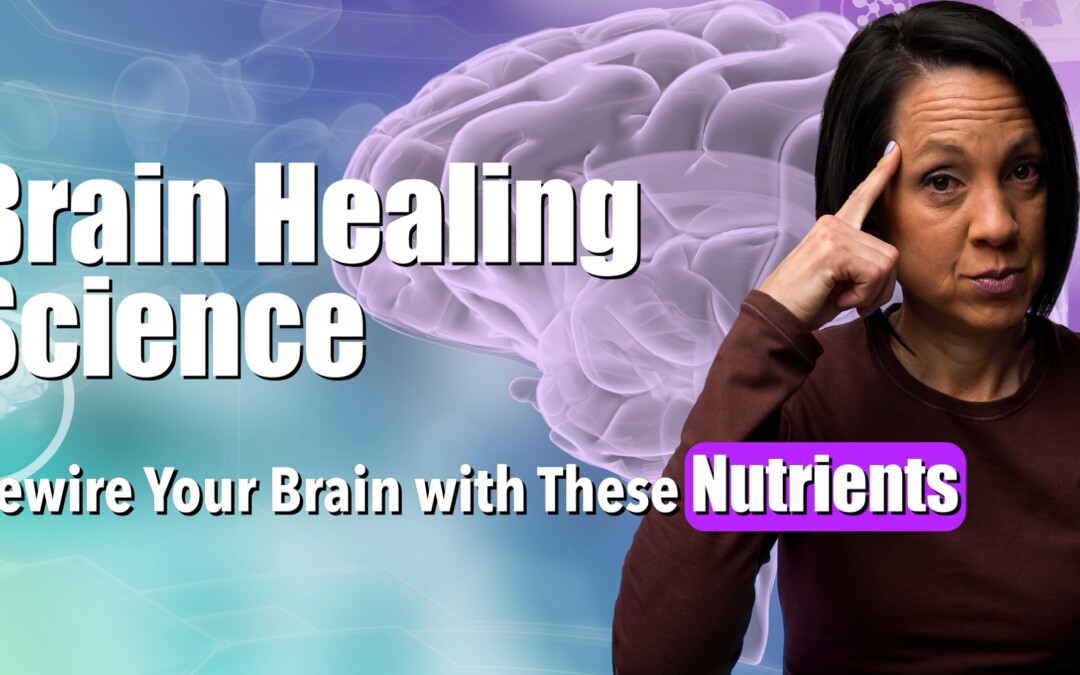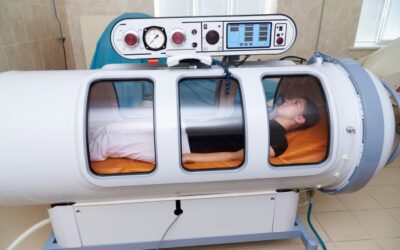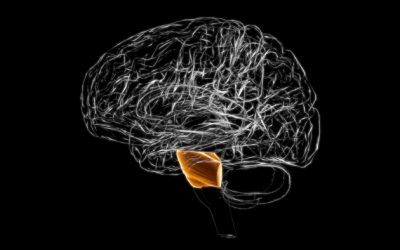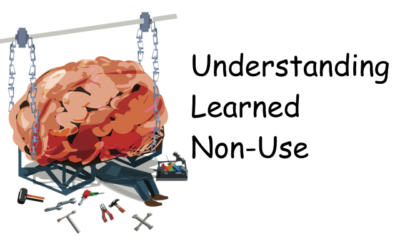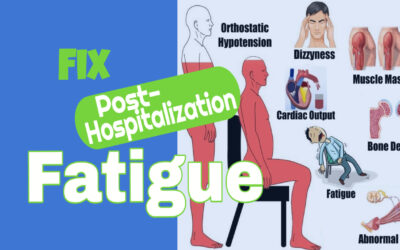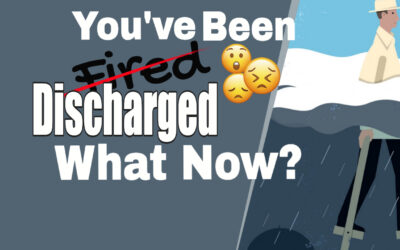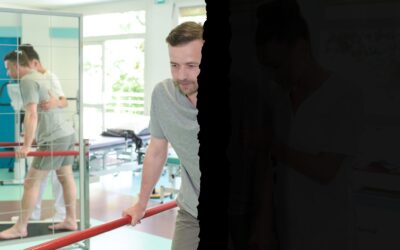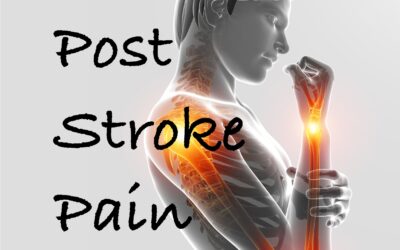Brain Recovery Nutrition
How Diet Fuels Healing and Focus
When it comes to stroke recovery, exercise and rehab often take the spotlight. But what if the foods you eat and the nutrients inside them could also play a powerful role in healing your brain?
That’s exactly what a new paper suggests, and it’s incredibly exciting. Scientists are now looking deeper into how nutrition can impact brain recovery after a stroke. Specifically, how certain nutrients may reduce chronic inflammation, oxidative stress, and mitochondrial dysfunction, three major roadblocks to healing.
Inflammation: Your Body’s Alarm System
Most of us think of inflammation as swelling after an injury, like when you bump your arm and it gets red or puffy. That’s your immune system rushing in to clean up damage and start healing.
This short-term inflammation is good, it’s how the body protects itself.
The problem is chronic low-grade inflammation. This happens when immune cells linger long after the damage is repaired. Instead of helping, they start harming healthy tissues, attacking nerves, joints, blood vessels, and even the brain.
After a stroke, chronic inflammation in the brain is very common. It’s one of the biggest barriers to recovery.
Free Radicals & Oxidative Stress
You’ve probably heard of free radicals. These are unstable molecules that the body naturally produces. In small amounts, they’re useful for signaling the immune system. But too many free radicals can damage healthy cells, DNA, and cell membranes.
That’s where antioxidants come in. Found in many whole foods, antioxidants neutralize free radicals before they can cause harm.
When free radicals overwhelm antioxidants, the body goes into a state called oxidative stress. This has been linked to aging, heart disease, diabetes, and neurodegenerative diseases like Alzheimer’s and Parkinson’s. And yes,oxidative stress plays a major role after a stroke, too.
Mitochondria: The Brain’s Power Plants
Every cell in your body has mitochondria, little engines that turn glucose (sugar) and oxygen into ATP, the energy that keeps cells alive.
But mitochondria aren’t perfect. When they produce energy, they also release free radicals as a byproduct. Normally, the body can manage this. But after a stroke, when oxygen supply is cut off, mitochondria struggle, releasing even more free radicals and accelerating damage.
Neurotransmitters: The Brain’s Messengers
Neurotransmitters are chemical messengers that help neurons (brain cells) communicate. One key neurotransmitter is glutamate, which excites neurons to fire signals.
After a stroke, too much glutamate floods the brain. This overstimulation called excitotoxicity kills neurons and worsens brain injury. But later in recovery, glutamate is actually needed for relearning skills and rewiring the brain. The key is balance, and nutrients can help regulate this process.
What Happens After a Stroke
A stroke cuts off oxygen and glucose to parts of the brain. Neurons begin to die, microglia (the brain’s immune cells) rush in, and a storm of inflammation and free radicals follows.
This leads to:
- Chronic inflammation that lingers long after the stroke
- Blood-brain barrier (the brain’s protective filter) weakens, letting in harmful molecules
- Oxidative stress (Reactive oxygen species (ROS) spike) damaging DNA and proteins
- Mitochondrial dysfunction, draining energy from cells
- Impaired healing, slowing new neuron and blood vessel growth
This explains why even healthy people who suffer a stroke are at higher risk of memory problems or faster cognitive decline later in life.
The Power of “Neuronutrition”
The exciting part is that nutrition can directly influence inflammation, oxidative stress, and mitochondrial function. Researchers are now using the term “neuronutrition”, a dietary approach to support brain recovery.
Here are the key nutrients that can make a difference:
1. Omega-3 Fatty Acids
Found in fatty fish (salmon, mackerel), chia seeds, flaxseeds, walnuts
Reduce inflammation, improve cell flexibility, and boost BDNF (a growth factor that helps neurons rewire)
2. Polyphenols
Found in green tea, leafy greens, berries, and colorful vegetables
Strengthen antioxidant defenses and calm inflammation
3. Essential Minerals
Zinc: Supports antioxidant enzymes
Magnesium: Helps regulate glutamate and supports learning
Copper & Selenium: Activate the body’s antioxidant systems
4. Vitamins
A, C, and E: Antioxidants that fight oxidative stress
Vitamin D: Helps regulate the immune system
B Vitamins: Critical for energy production in brain cells
5. Ketones
Produced during a low-carb or ketogenic diet
Provide the brain with an alternative fuel source and protect mitochondria
6. Fiber & Prebiotics
Found in vegetables, whole grains, and legumes
Feed healthy gut bacteria, which reduces systemic inflammation and supports the gut-brain connection
Why Whole Foods Matter More Than Supplements
Supplements may help fill gaps, but no pill can replace a healthy diet.
Ultra-processed foods fuel inflammation, disrupt blood sugar, and overwhelm the body with empty calories. The first and most powerful step for brain recovery is to:
- Eliminate (or minimize) ultra-processed foods (aim for <10% of daily calories)
- Prioritize protein at every meal (supports muscle and healing)
- Fill your plate with vegetables, fruits, nuts, and seeds for antioxidants and fiber
- Choose healthy fats (omega-3 rich foods, olive oil, avocado)
- Stay balanced with calories (burning roughly what you eat) avoid overeating, which worsens inflammation
Putting It All Together
Stroke recovery isn’t just about rehab exercises, it’s also about what’s happening inside your body. Chronic inflammation, oxidative stress, and weak mitochondrial function can all hold you back from progress.
The good news? Nutrition gives you tools to fight back. By focusing on omega-3s, polyphenols, key minerals, vitamins, fiber, and whole foods, you can create the conditions for your brain to rewire, repair, and recover.
This isn’t about chasing the latest “superfood” trend. It’s about building a lifestyle around whole, nutrient-dense foods that give your brain the tools it needs to heal.
Articles you may be interested in
How to Fix a Vaulting Gait
How to Stop Vaulting and Walk More Naturally After a Stroke If you’ve ever noticed yourself pushing up on your stronger leg to swing your weaker leg forward while walking, you may be experiencing vaulting. The good news? Vaulting can be unlearned with the right...
Discover 15 Principles to Rewiring Your Brain Faster
Discover 15 Principles to Rewiring your Brain Faster Transform Your Mindset and Achieve Rapid Results https://youtu.be/rfSCk_qJe64 Neuroplasticity: Your Brain’s Superpower After a stroke, the brain can suffer damage, but it’s far from the end. But here’s the good...
Eye Exercises for Stroke Survivors: Regaining Vision and Function
Visual impairment is a very common consequence in stroke survivors—almost 50% of stroke survivors become visually impaired. This is primarily because the brain's visual pathways are blocked or damaged when a person experiences a stroke. As a result, patients often...
Hyperbaric Oxygen Therapy and Neuroplasticity
Stroke and Brain Injury Background Traumatic brain injuries can result from sudden, violent blows to the head or when an object, such as a bullet, a sharp object, or a piece of skull, penetrates the brain tissue. Mild traumatic brain injuries have temporary effects on...
Pontine Stroke: Everything you need to know
https://youtu.be/bynfAyJNM_8 A Pontine Stroke is commonly referred to as a pontine CVA or pontine cerebrovascular accident. It is an ischemic stroke that affects a region in the brain stem known as the pons. Not sure why this is important? The pons communicates...
Understanding Learned Non-Use
https://youtu.be/iLo0j4aC44I Do you feel like you have plateaued? What I mean is, has your arm and leg movement recovery slowed to a crawl? Or maybe progress has stopped altogether? The common belief is that someone loses the ability to move because that part...
Post Hospitalization Fatigue: What causes it and how to do fix it?
Do you ever feel so tired, you don't even want to get out of bed? If so, you wouldn't be alone. There is a really good reason for this. Fatigue is an extremely common problem after a hospitalization. And sometimes, it has nothing to do with the reason you were...
Discharged from therapy. What now?
So, you have been discharged from therapy. So, what now? For some, this is a positive step in the rehab process. Some will understand right away that this is progress. On the other hand, for others it can bring up all kinds of negative emotions. "Is my therapist mad...
Hemineglect after a stroke: When half the world is missing
hemineglect is a condition where someone loses the ability to attend to, sense, and/or perceive information on one side. This condition is also referred to as unilateral neglect, spatial neglect, and/or hemispatial neglect. Several neurologic condition can cause this...
Post Stroke Pain: Diagnosis and Treatment
Pain is a common symptom after a stroke. Unfortunately, pain can be a significant barrier to regaining function. In some cases, there is an identifiable cause related to a movement or a structural problem. The rehab team can identify this, prescribe the...
